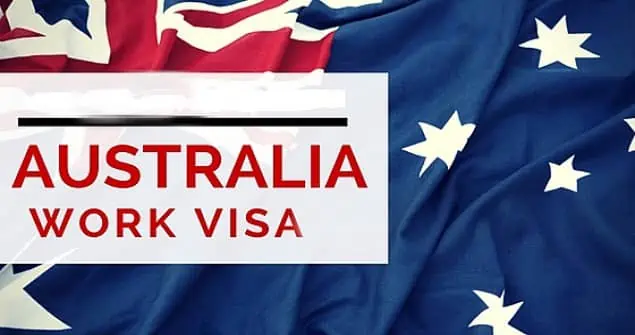Top Requirements for Getting a Work Visa in Australia

Australia continues to be one of the most sought-after destinations for skilled professionals, students, and travelers who want to combine work with adventure. With its strong economy, high standard of living, and diverse culture, many people dream of building their careers here. However, before you can start working, it’s important to understand the work visa Australia requirements. Meeting the right eligibility criteria and preparing your documents in advance can make your application process smoother and increase your chances of approval.
In this blog, we’ll break down the top requirements for getting a work visa in Australia, explore popular options like the Working Holiday Visa, and explain why consulting the best immigration agent in Australia can make a big difference.
1. Choosing the Right Work Visa Category
Australia offers several types of work visas, and the eligibility requirements differ for each. Some of the most common categories include:
-
Temporary Skill Shortage (TSS) Visa (Subclass 482): For skilled workers sponsored by an approved employer.
-
Skilled Independent Visa (Subclass 189): For highly skilled workers not sponsored by an employer.
-
Skilled Nominated Visa (Subclass 190): For skilled workers nominated by a state or territory government.
-
Working Holiday Visa (Subclass 417 & 462): Designed for young people who want to work and travel in Australia.
-
Employer Nomination Scheme (Subclass 186): For permanent skilled migration through employer sponsorship.
Before applying, it’s crucial to determine which visa category aligns with your skills, age, and goals.
2. Age Requirements
For many visas, age plays a critical role. For example:
-
The Working Holiday Visa requires applicants to be 18 to 30 years old (some countries allow up to 35).
-
Skilled visas often have an age limit of 45 years at the time of invitation.
Meeting the age requirement is a basic but non-negotiable condition for most work visa Australia requirements.
3. Skills and Qualifications
If you’re applying for skilled migration, you must prove your qualifications are relevant to Australia’s job market. This involves:
-
Occupation Lists: Your profession must be listed on the Skilled Occupation List (SOL) or Consolidated Sponsored Occupation List (CSOL).
-
Skills Assessment: A formal evaluation by the designated authority (e.g., Engineers Australia, ACS for IT professionals) to verify that your education and work experience meet Australian standards.
Without a positive skills assessment, your work visa application is unlikely to succeed.
4. English Language Proficiency
Strong English skills are essential for living and working in Australia. Most work visas require proof of English proficiency through recognized tests such as:
-
IELTS (International English Language Testing System)
-
PTE Academic (Pearson Test of English)
-
TOEFL (Test of English as a Foreign Language)
For example, skilled visas often require at least Competent English, which means scoring IELTS 6.0 or equivalent. Meeting this condition is a vital part of work visa Australia requirements.
5. Health and Character Checks
Australia maintains strict health and security standards for all migrants. Applicants must:
-
Undergo a medical examination approved by Australia’s Department of Home Affairs.
-
Provide police clearance certificates from every country they’ve lived in for more than 12 months in the last 10 years.
This ensures that individuals entering Australia do not pose a risk to public health or safety.
6. Financial Requirements
For certain visas, like the Working Holiday Visa, applicants must show they have enough savings to support themselves initially. For example, you may need to prove access to at least AUD 5,000, along with a return flight ticket or additional funds to buy one.
Skilled migration visas usually don’t require proof of funds if you have an employer sponsor, but having financial stability always strengthens your case.
7. Employer Sponsorship (If Applicable)
If you’re applying for a sponsored work visa (like Subclass 482 or 186), you must:
-
Have a job offer from an Australian employer.
-
Ensure your employer is an approved sponsor.
-
Meet the minimum salary threshold as per Australian employment laws.
This step is crucial for employer-nominated pathways, as the employer must prove no suitable local worker was available for the position.
8. Application Process and Documentation
When applying, you’ll need to submit:
-
Valid passport
-
Skills assessment report
-
English test results
-
Educational certificates
-
Employment references
-
Health and police clearances
-
Proof of funds (if required)
Providing accurate and complete documents is one of the most important work visa Australia requirements. Even a small error can delay or even result in rejection of your application.
9. Why Consult the Best Immigration Agent in Australia?
Navigating Australia’s immigration system can be overwhelming. Rules and requirements change regularly, and one mistake can cost you time and money. This is where the best immigration agent in Australia can make a real difference.
An experienced agent can:
-
Assess your eligibility and suggest the most suitable visa pathway.
-
Help with paperwork, ensuring your documents are error-free.
-
Guide you through skills assessments and English test requirements.
-
Keep you updated on immigration law changes.
-
Increase your chances of visa approval.
Investing in expert guidance can save you unnecessary stress and help you achieve your goal of working in Australia faster.
Final Thoughts
Securing a work visa in Australia is a life-changing opportunity, but it comes with its share of challenges. From meeting work visa Australia requirements such as age, skills, English proficiency, and health checks, to choosing the right visa category like the Working Holiday Visa, preparation is the key to success.
If you’re serious about building your future in Australia, don’t navigate the complex immigration process alone. Get in touch with the best immigration agent in Australia to receive personalized guidance and increase your chances of success.




